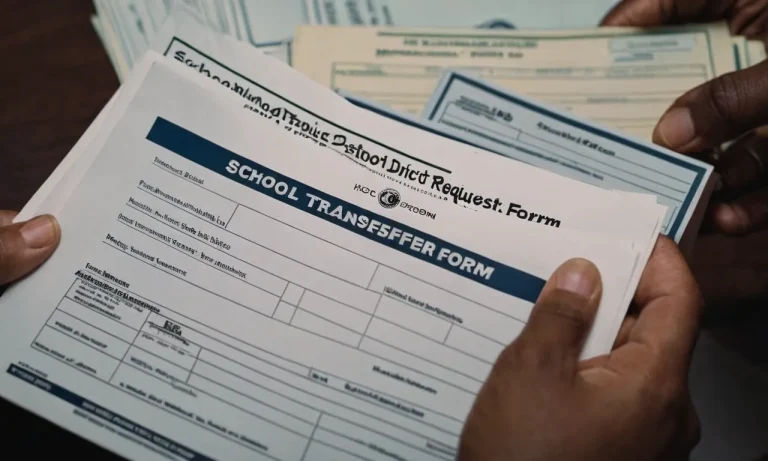As the academic year draws to a close, high school students across the nation brace themselves for a crucial milestone – the finals. These pivotal assessments can make or break a student’s academic journey, determining their overall performance and shaping their future prospects.
If you’re short on time, here’s a quick answer to your question: Finals in high school are comprehensive examinations that evaluate a student’s mastery of the entire course material covered throughout the academic year.
These assessments carry significant weight and play a crucial role in determining a student’s final grade, academic standing, and potential advancement to the next level.
In this comprehensive guide, we’ll delve into the intricacies of finals in high school, exploring their purpose, format, preparation strategies, and the impact they have on a student’s academic journey.
Whether you’re a current high school student, a parent, or an educator, this article will provide valuable insights to help you navigate this critical phase successfully.
Understanding the Purpose of Finals
Finals, also known as final exams or semester exams, are a crucial component of the high school academic experience. They serve as a comprehensive assessment of a student’s cumulative knowledge and skills acquired throughout the academic year or semester.
Understanding the purpose of finals is essential for students to appreciate their significance and approach them with the right mindset.
Assessing Cumulative Knowledge
One of the primary objectives of finals is to evaluate a student’s ability to retain and apply the knowledge gained over an extended period. Unlike regular tests or quizzes that assess specific units or chapters, finals encompass the entirety of the course material.
This comprehensive assessment allows teachers to gauge the depth of a student’s understanding and identify areas where they may need additional support or reinforcement. According to a study by the National Center for Education Statistics, over 75% of high schools in the United States administer final exams to measure student achievement.
Evaluating Critical Thinking Skills
Finals not only test a student’s knowledge but also their critical thinking abilities. These exams often include challenging questions that require students to analyze, synthesize, and apply the concepts they have learned.
By presenting complex scenarios or open-ended problems, finals encourage students to think beyond rote memorization and develop higher-order cognitive skills. This evaluation of critical thinking skills is particularly valuable as it prepares students for the demands of higher education and the workforce, where problem-solving and analytical thinking are highly valued.
A survey conducted by the ACT revealed that employers prioritize critical thinking and problem-solving skills when evaluating potential hires.
Preparing for Higher Education
Finals in high school serve as an important stepping stone for students transitioning to college or university. The experience of studying for comprehensive exams and demonstrating mastery over a broad range of material helps students develop effective study habits and time management skills.
These skills are invaluable in the rigorous academic environment of higher education, where final exams and cumulative assessments are common. According to a report by the National Center for Education Statistics, approximately 92% of colleges and universities in the United States administer final exams or comprehensive assessments.
By navigating the challenges of finals in high school, students gain a competitive edge and a smoother transition to the demands of post-secondary education. 👏
Types of Finals in High School
As high school students approach the end of each academic year, they brace themselves for a crucial milestone: finals. These comprehensive assessments serve as a culmination of the knowledge and skills acquired throughout the school year.
Finals come in various forms, each designed to evaluate different aspects of a student’s learning. Let’s explore the common types of finals in high school:
Standardized Tests
Standardized tests are a common form of finals, particularly in subjects like math, reading, and science. These tests are designed to measure a student’s proficiency against established academic standards. Examples include the SAT, ACT, and state-mandated assessments.
According to the National Center for Education Statistics, in the 2021-2022 school year, approximately 1.7 million students took the SAT, and 1.3 million took the ACT.
Subject-Specific Exams
In addition to standardized tests, many high schools administer subject-specific exams as finals. These exams cover the material taught in a particular course throughout the year. For example, students may take a final exam in English literature, algebra, or biology.
These exams can take various formats, including multiple-choice questions, essay prompts, or a combination of both. According to a survey by Education Week, 😊 over 80% of high school teachers incorporate final exams into their course assessments.
Project-Based Assessments
While traditional exams are prevalent, some high schools have embraced project-based assessments as an alternative or supplementary form of finals. These assessments challenge students to apply their knowledge and skills to real-world scenarios or complex problems.
Examples may include research projects, presentations, or hands-on demonstrations. According to a study by the Buck Institute for Education, project-based learning can significantly improve student engagement, critical thinking, and retention of knowledge.
Regardless of the format, finals serve as a crucial evaluation tool, allowing teachers to gauge students’ mastery of the material and identify areas for improvement. While finals can be stressful for students, they also provide valuable opportunities to demonstrate their hard work and preparation throughout the academic year. By understanding the different types of finals and preparing accordingly, high school students can approach these assessments with confidence and a greater chance of success.
Preparing for Finals: Strategies for Success
Effective Study Habits
As finals approach, developing effective study habits is crucial for academic success. Start by creating a conducive study environment that minimizes distractions and promotes focus. Set up a dedicated workspace, gather all necessary materials, and prioritize your subjects based on their difficulty or exam dates.
Break down your study sessions into manageable chunks, alternating between active review and short breaks to maintain productivity and avoid burnout.
Engage in active learning techniques such as creating flashcards, mind maps, or summaries to reinforce your understanding of the material. According to a study by the American Psychological Association, active learning strategies lead to better retention and application of knowledge compared to passive studying methods.
Don’t hesitate to seek help from teachers, tutors, or classmates if you encounter any challenging concepts.
Time Management Techniques
Effective time management is the key to balancing your study commitments with other responsibilities. Start by creating a comprehensive study schedule that allocates dedicated time for each subject. Prioritize tasks based on their importance and deadlines, and be realistic about the time required for each task.
Utilize productivity tools like calendars, to-do lists, or apps like Forest to stay organized and focused.
Remember to factor in breaks and self-care activities to prevent burnout. According to a study by the University of Georgia, taking regular breaks can improve concentration and productivity by up to 15%.
😊 Don’t procrastinate or leave everything until the last minute, as cramming can lead to increased stress and poor retention of information.
Stress Management and Self-Care
Finals can be a stressful time, but it’s essential to prioritize your well-being. Incorporate stress-relieving activities into your routine, such as exercise, meditation, or engaging in hobbies you enjoy.
Regular physical activity has been shown to reduce stress levels and improve cognitive function, according to the American Psychological Association.
Don’t forget to maintain a balanced diet and get enough sleep, as these factors can significantly impact your focus and energy levels. Surround yourself with a supportive network of friends and family who can provide encouragement and a listening ear when needed.
If stress becomes overwhelming, don’t hesitate to seek professional help or counseling services available at your school. Remember, taking care of your mental and physical health is just as important as preparing academically. 👏
The Impact of Finals on Academic Performance
Grading and Final Course Scores
Final exams play a pivotal role in determining a student’s overall grade for a particular course. Typically, these exams carry significant weight, often accounting for 20-30% of the final grade or even more in some cases.
This means that a student’s performance on the final exam can make or break their chances of achieving a desired grade. According to a study by the EdWeek, students who perform well on final exams tend to have a higher overall GPA and are more likely to succeed in college-level courses.
College Admissions and Scholarships
Final exam scores can also have a substantial impact on a student’s chances of gaining admission to their desired college or university, as well as their eligibility for scholarships and financial aid.
Many colleges and universities consider a student’s overall academic performance, including their final exam scores, when making admissions decisions. A strong performance on final exams can demonstrate a student’s ability to handle the rigors of college-level coursework and can make their application stand out.
Additionally, some scholarships and financial aid programs are awarded based on academic merit, and final exam scores can play a significant role in determining a student’s eligibility. According to data from NACAC, over 80% of colleges and universities consider final exam scores as part of their admissions process.
Personal Growth and Resilience
Beyond the academic implications, final exams can also contribute to a student’s personal growth and development of resilience. Preparing for and taking final exams requires time management, study skills, and the ability to handle stress and pressure.
These skills are not only valuable in an academic setting but can also translate to success in future careers and life experiences. By learning to cope with the demands of final exams, students can develop a growth mindset and a sense of determination that can serve them well in various aspects of their lives.
As noted by Edutopia, students who develop resilience through challenges like final exams are better equipped to overcome obstacles and achieve their goals. 😊 Don’t underestimate the power of perseverance!
Conclusion
Finals in high school are a pivotal milestone that can shape a student’s academic journey and future prospects. By understanding their purpose, types, and preparation strategies, students can approach these assessments with confidence and determination.
Remember, finals are not just a test of knowledge but also an opportunity to develop critical thinking skills, time management abilities, and resilience. Embrace the challenge, stay focused, and give your best effort – the rewards of a successful performance can open doors to exciting opportunities in higher education and beyond.
As you navigate this crucial phase, remember to seek support from teachers, counselors, and peers. With the right mindset, preparation, and support system, you can conquer the finals and emerge as a well-rounded, accomplished individual ready to take on the next chapter of your academic and personal growth.






